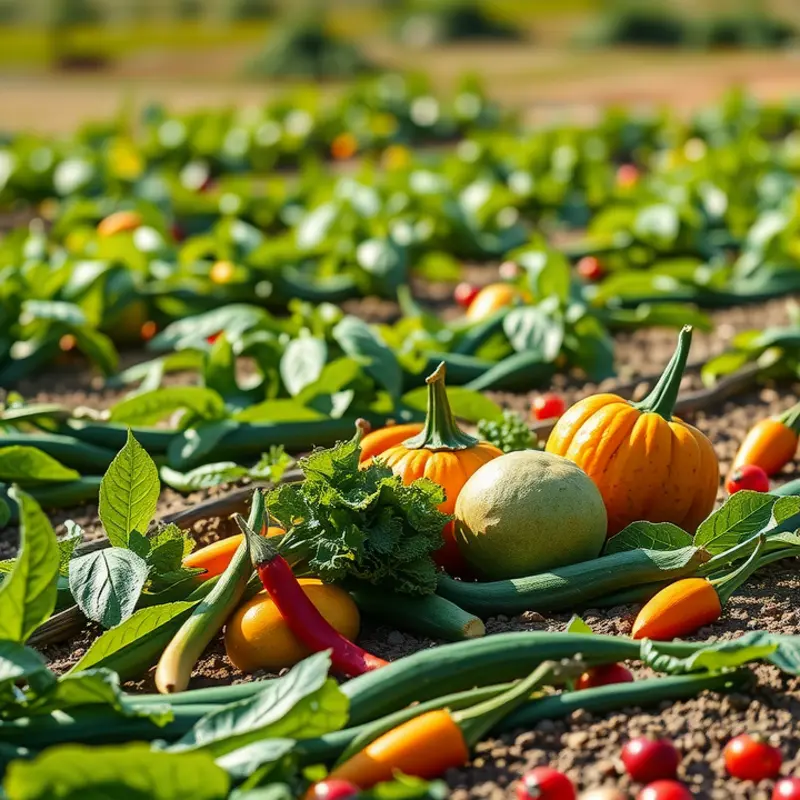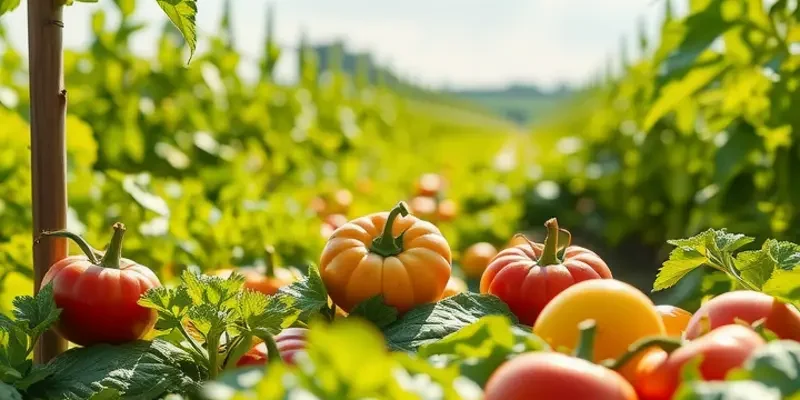Making environmentally-conscious food choices is essential for nurturing both our families and the planet. With the rise of sustainability awareness, families can play a pivotal role in reducing their ecological footprint through mindful eating practices. Whether it’s buying local produce or reducing food waste, adopting green eating strategies not only promotes health but also strengthens community bonds. Let’s explore practical ways families can embrace eco-friendly food choices that benefit everyone.
Cultivating Local Connections: The Power of Community-Supported Agriculture

Participating in a Community-Supported Agriculture (CSA) program offers families a unique way to access fresh, seasonal produce while supporting local farmers. It connects community members directly with their food sources, fostering a strong sense of localism and sustainability. By investing in a CSA, you not only enjoy high-quality produce but also contribute to reducing the overall carbon footprint. Since the food travels shorter distances, it requires less fuel and packaging.
Engaging in a CSA allows families to enjoy fresh, nutrient-rich food that aligns with the seasons. Seasonal eating encourages diversity in diet as families explore a variety of fruits and vegetables unique to each time of year. This fosters an appreciation for nature’s cycles and can spur creative culinary exploration in the kitchen. For those exploring plant-based options, insights from guides like easy-plant based eating can complement this journey.
Finding a CSA near you is simpler than ever before. Community bulletins, local farmers’ markets, or online directories can point you toward programs in your area. When selecting a CSA, consider visiting the farm if possible, as this offers a first-hand experience of the farming practices and values. Many CSAs provide tours or open farm days, inviting families to connect more deeply with their food source.
Involving the whole family in CSA participation enhances educational opportunities. Children learn about the origins of their food and develop a deeper understanding of sustainability. Families can create meaningful traditions around unpacking their CSA box together, identifying new vegetables, and planning meals. This hands-on involvement nurtures environmental stewardship from an early age.
Beyond health and environmental benefits, CSAs strengthen the local economy. They enable small-scale farmers to maintain viable operations and preserve farmland. By committing to a CSA subscription, families provide farmers with financial security that allows them to focus on sustainable farming methods without market pressures.
CSA programs often include newsletters featuring recipes and storage tips, ensuring families maximize their food’s potential. Proper storage is key to maintaining the freshness of seasonal harvests. Tips found in resources like eco-smart kitchen storage can aid in minimizing waste.
Integrating CSA participation into your family’s lifestyle may require adjustments, but the rewards are plentiful. It not only supports healthy eating habits but also cultivates a deeper connection to the community and environment. This sustainable practice enhances family bonding through shared responsibility and appreciation for nature’s bounty.
Waste Not: Strategies for Reducing Food Waste at Home

Reducing food waste at home is a vital component of an eco-friendly lifestyle. By implementing a few strategic practices, families can contribute to sustainable living while enjoying delicious meals.
Begin with meal planning: a proactive approach that reduces unnecessary purchases and ensures the use of what’s already on hand. Create a weekly menu that aligns with your family’s schedule, allowing for flexibility. Incorporate recipes that use overlapping ingredients to maximize each ingredient’s utility. Consider exploring minimal prep dinner ideas to simplify your weekly plan and minimize food waste.
Proper food storage is crucial in prolonging the life of ingredients and leftovers. Invest time in organizing your kitchen and pantry so items are visible and accessible. Utilize clear containers for leftovers or perishables and label them with dates to avoid overlooking older items. Freeze fruits and vegetables that might spoil, ensuring they’re ready for future use. Learn more about efficient storage techniques in your kitchen by reviewing the best practices for eco-smart kitchen storage.
Get creative with leftovers: transform last night’s dinner into today’s lunch by reimagining dishes. For instance, roasted vegetables can become a frittata filling or a soup base. Encourage your family to experiment with flavors, incorporating ingredients in surprising ways.
Understanding expiration dates can significantly reduce waste. Know the difference between “sell by,” “use by,” and “best if used by” dates. Often, foods are safe and delicious after these dates when stored properly. Trust your senses—smell and taste—to determine food safety whenever possible.
Finally, start composting as a practical solution for food scraps. It reduces waste sent to landfills and creates nutritious compost for your garden. Include fruit and vegetable peelings, coffee grounds, and eggshells. Avoid meat, dairy, and oils to maintain a healthy compost system. And, while contributing to your garden’s health, you’re fostering a more sustainable environment.
Each of these strategies provides an opportunity to reduce waste effectively. Encouraging these practices within your family not only ensures environmental benefits but also cultivates an appreciation for mindful consumption. Through these steps, delicious, eco-conscious meals become the foundation of daily life.
Final words
Embracing green eating strategies is a rewarding endeavor that not only supports your family’s health but also contributes positively to the environment. By engaging in local agriculture and making conscious food choices, families can reduce their ecological footprint while enjoying fresh, delicious meals together. Involving children in these practices helps cultivate a culture of sustainability and respect for our planet. Small changes in everyday eating habits can lead to significant impacts. As you transition to a more eco-friendly lifestyle, remember that each green choice counts towards a healthier future for generations to come.








